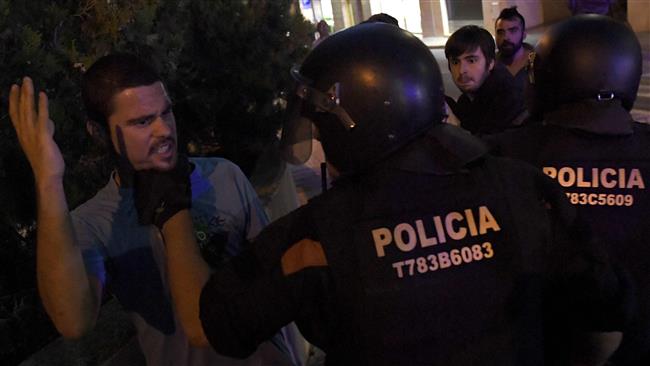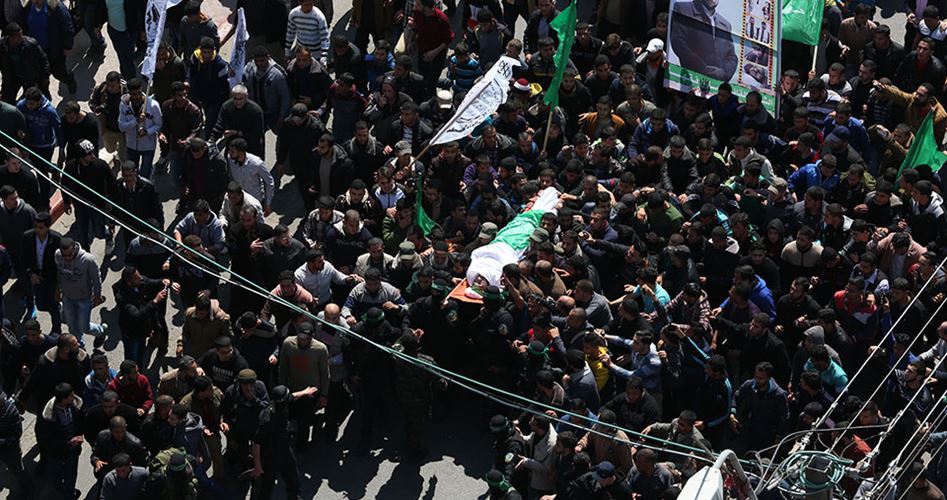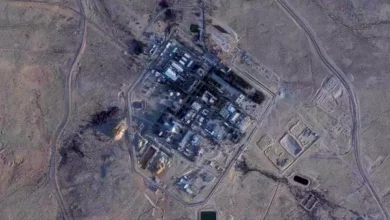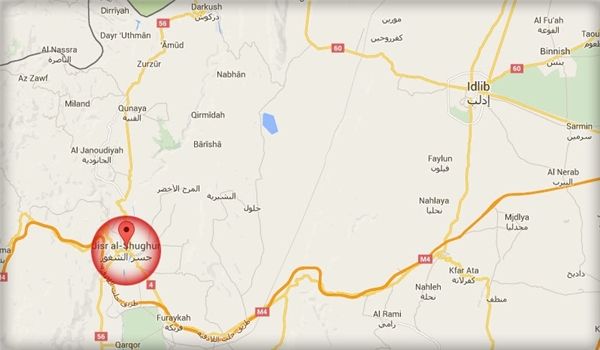Spain seizes Catalonia finances to block independence referendum


The Spanish government has taken control of Catalonia’s finances in an attempt to block a banned independence referendum due to be held in the autonomous region early next month.
The government has taken over the payment of essential services and public workers’ salaries in Catalonia to prevent the money from being spent on the referendum.
Catalonia’s regional government challenged the measure in the country’s Supreme Court on Tuesday, but according to a court spokeswoman, the move was “in force” and would not be suspended while judges rule on its legality.

Catalonia and other Spanish regions pay taxes to Madrid and are given a quota to spend on essential services. The region, which is home to around 7.5 million people, receives about 1.5 billion euros ($1.8 billion) a month from the central government.
The takeover of finances “means that from now on (Catalan leaders) no longer have their money,” said a spokeswoman for Spain’s Budget Ministry, adding that they would not have the right to allot any “extra expense” beyond those already foreseen.
‘Taking away Catalonia’s autonomy’
Catalonia’s vice president, Oriol Junqueras, has objected to the seizure of finances, saying it is practically a way of taking away the region’s autonomy. He described the move as “a total irresponsibility.”
Junqueras further said the move was “unprecedented,” and that it would lead “to an administrative collapse” in Catalonia.
Under the measure, Catalonia will not be able to pay the salaries of about 170,000 employees easily. The Catalan government has to provide complete details of the employees’ bank accounts and the number of sick leave days to Madrid to calculate the amount they should be paid.
Junqueras, however, has suggested that the regional government may not provide that information. At a news conference on Tuesday, he said, “We will act with our usual normality.”
But the budget ministry spokeswoman warned that if the regional government refused to provide the information, that would mean that the Catalan government “is not cooperating, that they don’t want the salaries of public workers to be paid” and that Madrid would “turn off the tap” of financing for the region.

The Catalan government has said it has “all the resources to face our obligations.”
The region generates a quarter of its revenues from taxes that it collects itself as well as from university tuition fees.
In defiance of authorities in Madrid, Catalan President Carles Puigdemont has set October 1 as the date for a referendum on independence.
The wealthy region held a symbolic referendum back in November 2014, in which more than 80 percent of the 2.3 million people who cast ballots backed independence for Catalonia, according to Catalan officials.
According to recent polls, about 41 percent of people in the region support independence.
Spain police clash with protesters
The region has recently been the scene of almost daily protests and clashes between police and pro-independence protesters.
On Tuesday, clashes erupted between police and angry protesters in the Catalan city of Terrassa, after police raided the offices of Spain’s biggest private delivery company Unipost for hidden ballot boxes.
Protesters holding a referendum voting ballot and separatist flags were chanting “Out, out Spanish police.”
Armed police forces have been busy raiding newspaper offices and other sites in Catalonia in recent days to search for election material, such as ballot boxes, voting papers, and campaign leaflets.
Puigdemont, who faces criminal charges for organizing the referendum, has said there were over 6,000 ballot boxes ready for the vote.




